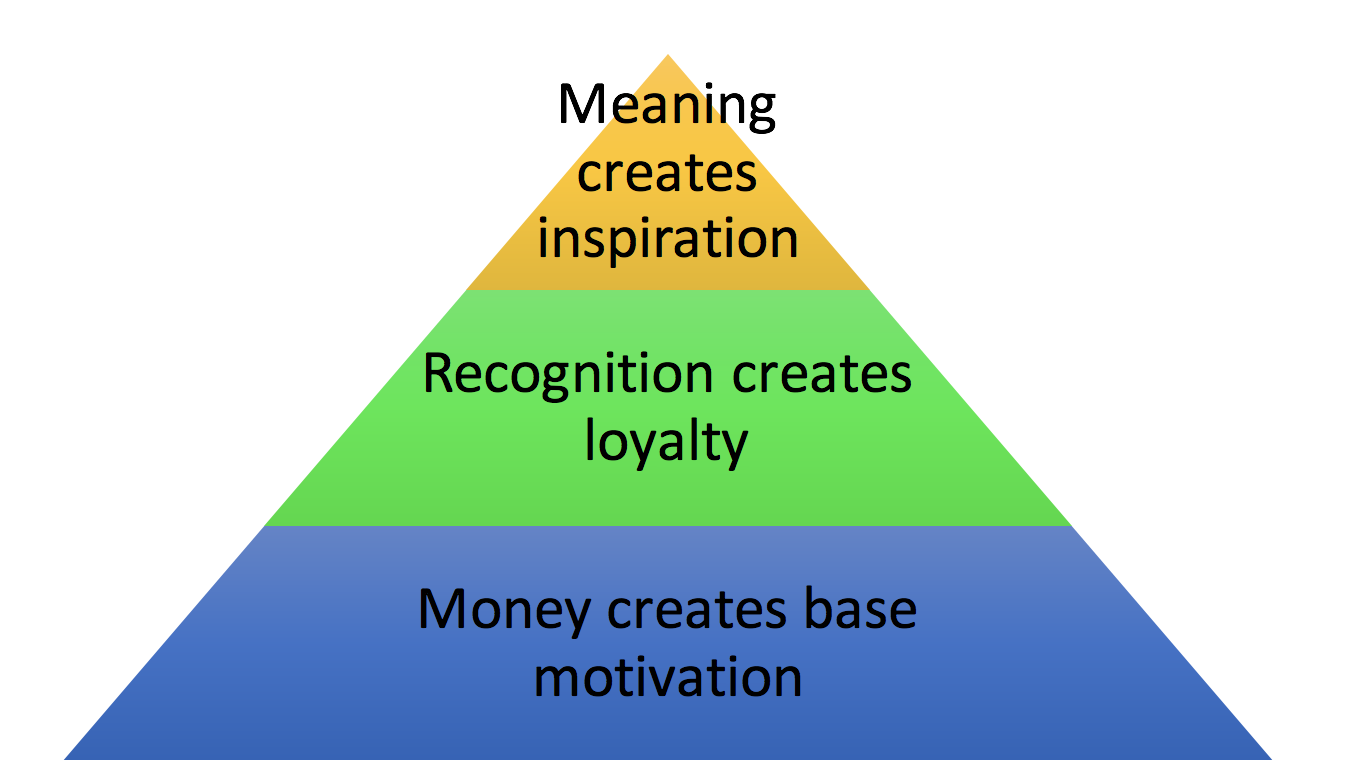This post elaborates on the last section from the previous post, On the Making of Dream Teams …
Sometimes it’s very easy for company leaders to think of their employees as cogs in the machine. The funny thing is, technological disruption has been happening so fast, that ‘the machine’ can soon find itself obsolete, and what would be left are the people. So before a company starts thinking their biggest asset is their brand name or Intellectual Property, they need to recognize it’s actually the people.
The best framework for this comes from Chip Conley’s book, Peak, where his management style grew out of understanding and applying Abraham Maslow’s Hierarchy of Needs. [He also defines pyramids for customers as well as investors but I won’t cover those here.]
While the importance of a fair compensation package cannot be overstated, more money does not necessarily translate to higher performance. The difference between average companies and great companies is the level of motivation of the people within the company. And instead of companies designing systems around extrinsic motivations such as commissions and bonuses, the focus really needs to be on intrinsic motivations. He quotes psychologist Frederick Herzberg, “People are motivated by interesting work, challenge and increased responsibility.”
This goes in line with what Dan Pink writes in his book, Drive, about the three drivers that satisfy human’s needs for growth and achievement; autonomy, mastery and purpose (/meaning).
Recognition
Formal companywide recognition initiatives such as the annual recognition dinner or the employee of the month club are pretty common nowadays. But great companies also have a strong culture of informal recognition that’s predicated on sincerity, individualization and timeliness.
Sincerity is important, because someone might read this post and then read somewhere else about how the millennial generation was raised expecting a 10th-place trophy then start overdoing this whole ‘recognition’ thing thus reinforcing negative behavior as a consequence.
[Though I must digress and say the 10th-place trophy idea is mostly a north American thing, because we didn’t have that growing up in the Middle East…our motivation was usually kept in line with the famous Sha7a6a/juta/kyatu/shoe depending on which language you read.]
To learn how to individualize gifts of appreciation, you don’t need to go further than the work of Gary Vaynerchuk, founder and CEO of digital agency, Vaynermedia as well as author of The Thank You Economy. He knows his employees/customers enough (or has someone stalk their social media enough) to personalize his gifts of appreciation. He’s also famous for his 5 minute meetings with employees just to appreciate their work.
I guess the point of all this is to remember, small stuff matters.
I have a friend who used to work in a huge corporation with a culture of neglect that was so prevalent that when she emailed her resignation letter, even that was neglected!
For over a week or so.
It was one of those it’s-so-sad-it’s-funny stories that we ended up laughing about.
But the point is, it was really obvious how much they cared.
Or not.
There’s a quote that says, “Somehow we forget that all that matters is people, and whether we walk away leaving them better or worse for having met us…We control that.”
Love this post? Share it with your friends on facebook.
Follow me on Instagram and twitter on @ahechoes
and subscribe to the newsletter here; [mc4wp_form id=”680″]
Image via pixabay.com

